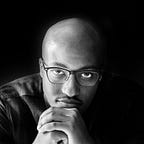Learning How To Learn
It’s 2.30 am and you’ve just finished the chapter of that new book, part of an online course, or studying for that exam. You get into bed feeling pretty awesome about how it was to learn that day. You even sleep feeling like a new you.
Then you wake up the next day, and ask yourself what you were reading or learning the previous day and… Oops, your mind is so blank that you can actually hear the whistle of the wind inside it. Perhaps a grass ball even blows by, like in those old Westerns just before the shootout :)
This has been me most of my life. So many books read, yet if you asked me what was in them I can barely summarize it in 3 sentences, let alone remember the name of the author. That’s where this comes in.
Over the years, we’ve been taught to learn so we can get good grades and jobs, and that’s about it.
But what about when you want to learn things that you’re curious about… Passionate about… Things that you’ve always dreamed of, and no grades or jobs were involved?
That curiosity is what led me to search ‘how to learn’ on YouTube (man, sometimes it’s so cool that YouTube is like a university), and it brought up this video by Ali Abdaal that I’ve since made a part of my day to day life.
So, how do we learn anything for the first time?
In Ali’s video, he breaks down the components of learning into 2:
- Understanding
- Remembering
Simple enough right? Note how memorization/cramming has been left out.
Step 1: Understanding
You’ll know you’ve understood something if you can explain it to a friend and answer their initial questions about it. The theory here is that when you’re able to teach something to someone, then you truly understand it, because it’s rather difficult to teach what you don’t know.
A few prompts we can ask ourselves for example after reading something:
Can you explain it to your friend?
Can you explain it to your 5-year-old nephew or niece?
This is also where the concept of Active Recall comes in.
What is Active Recall? This is when you actively test yourself on what you’re learning for example let’s picture that you’re reading a book. Whilst reading e.g. a paragraph or 2, stop and ask yourself:
What have I just read?
What were the key ideas?
Can I rephrase this in my own words?
Now here’s the kicker, remember to be forgiving of yourself. It’s okay if you need to reopen the book to confirm something. This will be uncomfortable at first, as is anything that’s worth doing in this life :)
Keep quizzing yourself on things as you move along both for when you’ve learned the material and even when you’re taking it in for the first time.
Step 2: Remembering
The pillars of remembering are 2-fold, 1 of which we’ve already touched on but let’s dive deeper:
- Active Recall — testing yourself
- Spaced Repetition — repeating that testing of yourself over a certain predetermined period of time
01 — Active Recall
Here are some techniques you could try here:
- Writing questions for yourself that you answer and if you can’t, allowing yourself to look it up till it sticks
- Using cards, even digital ones in apps like Anki
- Spider diagrams — where you trace out every single thing you remember and then connect the dots
The more you try to retrieve this information, the more hard-wired to the brain it becomes, making it easier to remember.
02 — Spaced Repetition
This is exactly as sounds. It involves repeating this quizzing of yourself, only now you schedule how often you do it. For example, you test yourself today, then a week from now, 2 weeks from now, etc.
If you can’t remember it, you open that book, or that course, or that YouTube video and confirm it.
The point of spaced repetition is to interrupt what Ali called our forgetting curve so that we can keep the stuff we learn in our brains for longer. If you found this helpful then you can check his whole video. I found it really helpful :)
Till next time,
Love,
Godo.
